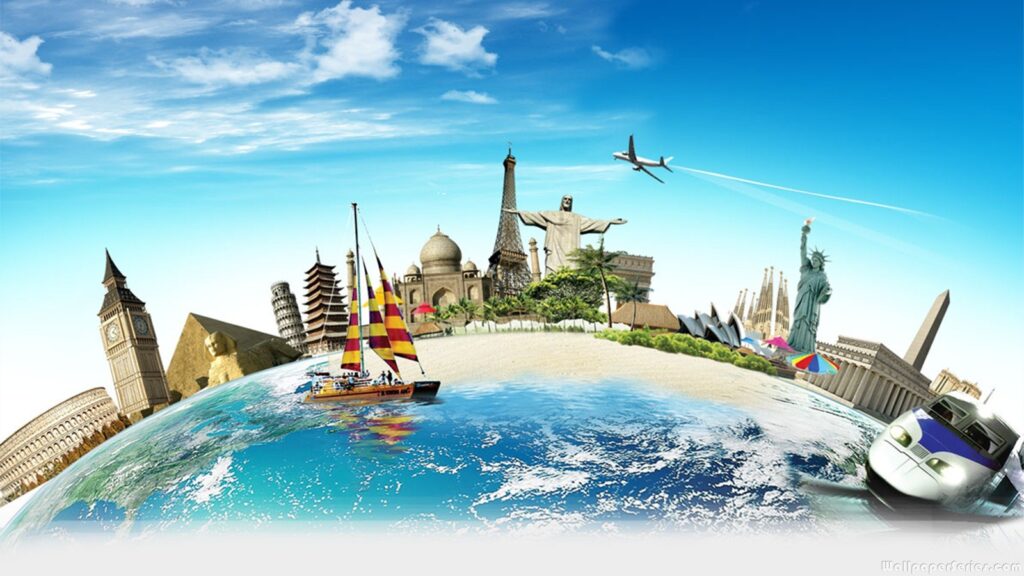Decades ago, the process of planning a vacation was inconveniently time-consuming and complicated. You would have to either physically go to the airport, have a travel agent, or spend an absurd amount of time on the phone coordinating with multiple people just to book a flight and make housing arrangements. In today’s age, we have websites like expedia.com, Airbnb, and Uber, which make traveling around the world significantly easier than it used to be. Along with these platforms, personalization through big data and AI has made it easier for people to find attractions that appeal to their specific interests. These digital improvements have not only made the customer experience more enjoyable, but have also improved the accuracy, efficiency, and productivity of the tourism industry as well as increased revenue and profits.

Making Life Easier
Traveling for pleasure used to be seen as a luxury, but in the digital age, more and more people have the ability and desire to travel thanks to recent digital platforms and innovations. I am personally planning a trip to Europe this summer and have been able to use websites like Skyscanner, Workaway, Eurail, Airbnb, and Hostelworld to get connected with people that currently live abroad, find recommendations for hotels and hostels, find trains and ferries that I can book in advance, and read reviews for excursions, restaurants, and hotels. It has still been a difficult process because there are so many platforms available to find information that it is hard to find the best deal, but I know if I was trying to plan this trip by myself 30 years ago, I probably would not have been able to.
Aside from the availability of platforms that help people plan their trips, AI-powered personalization is also on the rise to become a powerful tool in the tourism industry. By identifying an individual’s preferences and needs, travel companies can use that information to increase efficiency in regard to tracking and updating customer data. It also helps enhance the customer’s experience when planning a trip which leaves them satisfied and likely to re-use and recommend the company they booked with. Even after the customer has booked their transportation and accommodation, travel companies can recommend experiences and destinations that the customer would enjoy based on their personal interests as well as customize their trip so they can plan their entire vacation through one company. Even if you are the digital nomad type, many travel companies use AI personalization to find and alert you of deals, cheap flights, and cheap hotels or events that are going on near you or available soon. More personalization means more satisfied travelers which in turn leads to higher revenue for the tourism industry.

Challenges
While the digitalization of travel has proven to be much more satisfying for customers, there are some new challenges that tourism companies face. One of the biggest challenges they face is security and privacy concerns. All tourism-related companies like airlines, transportation, and hotels/housing companies have thousands of data points on individuals including personal information like credit cards, contact information, and current location. Following digital transformation trends is necessary for these businesses to stay relevant, but if they do not have the proper security in their systems, they put their company and customers at risk. Another challenge facing the tourism industry is a gap in the necessary knowledge to utilize and effectively implement these technologies. Digital transformation happens quickly and if companies are not putting in the time to teach their employees these new skills, they could see a decrease in productivity, an increase in errors, and ultimately weaken their competitive edge in the market. This is particularly difficult because the tourism industry, especially the airline industry, is struggling to obtain and maintain its staff already, and they need to allocate resources and time to train their employees on a regular basis.
A Look Into The Future
That being said, security concerns and a gap in skill set are common problems with digital transformation in any industry, and I think the future of innovation in tourism is quite promising. As AI continues to progress, the use of Chatbots will allow travelers to answer their questions easily and frequently so they don’t have to spend time searching through the website when they are in a rush. Nowadays, it usually takes a long time for information about an unexpected situation to trickle down to the customer, which results in conflict and stress for both the customer and the employees of a travel business, so I hope in the future Chatbots will be able to deliver real-time information quickly. I also think the predictive analysis abilities of AI will progress in the future which will help travel companies anticipate customer needs and plan for busier periods. This would also help people have more information on the cheapest/nicest/busiest times to travel and visit attractions. While this does already exist, not every year is the same so I would like to see progression in this area that is specific to each day.

Digital transformation has already had a significant impact on the tourism industry and has made the experience on the customer and business side much more pleasant. Change always brings challenges but I think as the use of technology expands, the companies that are reliable and up-to-date in all areas will succeed and those who are not willing to put in the effort to update will not. With this new age of working remotely and an increasing desire to travel, this transformation we have seen in the use of technology in tourism will continue to become easier and more efficient and I am grateful for the progress that has been made so far.
Sources
http://blog.wearedrew.co/en/digital-transformation-in-the-tourism-sector